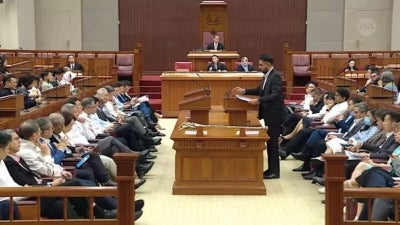What is it with David Cameron? Brexit gambler returns from political wilderness

LONDON, UK - David Cameron, who on Monday made a surprise political comeback as foreign secretary, lost his job as prime minister on a high-stakes gamble to call a referendum on Britain's EU membership.
The 57-year-old former public relations adviser has kept a low profile since resigning in 2016, mostly confining himself to writing his memoirs and a number of business roles.
But in 2021 he became embroiled in a lobbying row, with an MPs' report accusing him of a "significant lack of judgement" for contacting ministers by text on behalf of finance company Greensill Capital.
Although the report cleared him of any wrongdoing, it said it had been inappropriate for him to lobby on behalf of the firm in which he held a "very significant personal economic interest".
Cameron called the referendum that led to Brexit as a way of uniting his faction-riven Conservative party, betting that he would win easily with his powers of persuasion.
But he and the rest of the pro-EU "remain" camp lost the vote on June 23, 2016, and Cameron announced his resignation as prime minister within hours.
Theresa May took over at Downing Street the following month.
In 2019, Cameron published his autobiography "For the Record", partly written in a trendy "shepherd's hut" in the garden of his country home.
In the memoir, he said he had no regrets about calling the vote but that the tortuous Brexit negotiations had been "painful to watch".
Cameron also launched a blistering attack on long-term rival and then prime minister Boris Johnson, accusing him of only backing Brexit to further his own career.
- Privileged upbringing -
The son of a stockbroker, Cameron took a well-trodden route to power for a Conservative MP -- the elite boarding school Eton then Oxford University.
In his own memoirs, former US president Barack Obama described Cameron as having the "easy confidence of someone who'd never been pressed too hard by life".
Commentators pointed out that while Cameron undeniably enjoyed a privileged upbringing, he and his wife Samantha had also endured great tragedy.
The eldest of the couple's four children, Ivan, was born with Ohtahara syndrome, a rare combination of cerebral palsy and severe epilepsy, and died aged six in 2009.
At Oxford, the young Cameron was a member of the hard-drinking, exclusive Bullingdon Club, of which Johnson was also a member.
He went on to work for the Conservatives as an advisor before a stint in public relations, which ended when he was elected to parliament in 2001.
Cameron rose swiftly through the ranks of the party -- which was then struggling badly against Labour prime minister Tony Blair's Labour government -- and was elected leader in 2005.
He tried to "detoxify" the party brand in part by avoiding discussion of the EU, which had split the Conservatives since Margaret Thatcher's premiership in the 1980s.
His first election victory in 2010 ended 13 years of Labour government and at the age of 43 made him the youngest premier for 200 years.
But the centre-right Conservatives did not win enough seats to govern alone and had to form a coalition with the centrist Liberal Democrats.
The coalition was dominated by spending cuts as Britain emerged from recession, while foreign policy debate was largely hijacked by Conservative wrangling over the EU.
Another risky referendum gamble paid off when Scotland voted to stay as part of the UK in 2014.
- Brexit legacy -
After five years in coalition, the Conservatives won a surprise clear majority in the May 2015 general election, allowing them to rule alone.
The win meant that the EU referendum -- first promised by Cameron in 2013 to placate his restive party, but which many in Westminster said he never believed would happen -- became a reality.
The bitterest blows to Cameron, however, came as campaigning got under way.
Some of his most loyal lieutenants including justice minister Michael Gove -- godfather to his late son -- said they would campaign for Brexit.
Then Johnson, at the time serving as London mayor, sprung a surprise by also backing "Leave".
During the campaign, Cameron argued that Britain's economy would be badly hit by Brexit.
But he failed to counter the "Leave" camp's argument that immigration from EU countries needed to be cut to reduce the strain on public services, and that this could only happen if Britain left. - AFP
On returning to the government Monday, Cameron said he was "motivated" by public service and had "gladly accepted" Sunak's invitation to serve as foreign secretary.
Download Sinar Daily application.Click Here!














